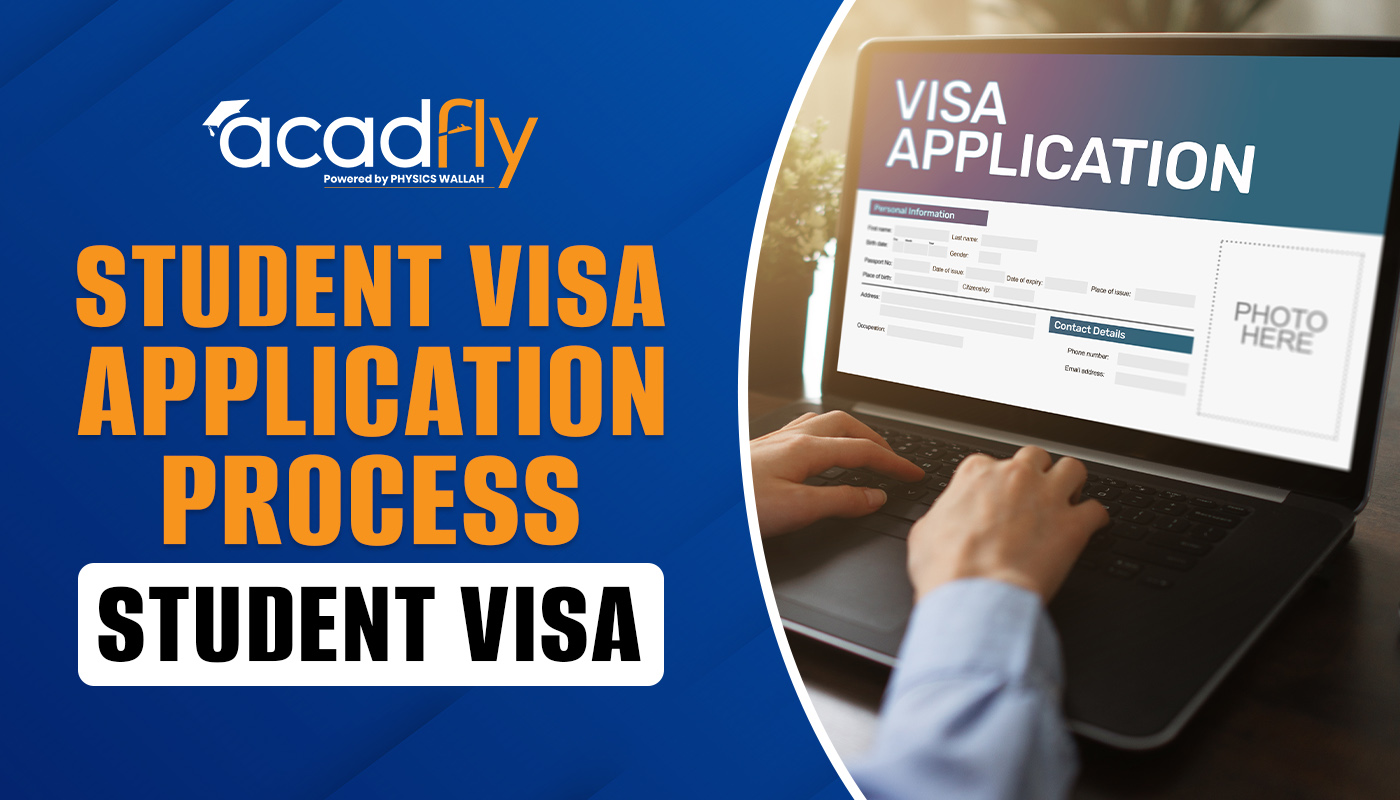
Preparing for studying abroad in the Czech Republic involves careful planning and organization to ensure a smooth transition. Start by creating a detailed checklist to cover all essential aspects, from visa applications to packing. Understanding the Czech Republic's student visa requirements is crucial to ensure you meet all the necessary criteria. Additionally, planning your accommodation and learning about cultural norms will help you adapt quickly and make the most of your study abroad experience. By taking these steps, you can set yourself up for a successful and enriching time in the Czech Republic.
Preparing a Comprehensive Study Abroad Checklist for the Czech Republic
To prepare for studying abroad in the Czech Republic, start by creating a detailed checklist that covers all essential aspects. Begin with the study abroad checklist for the Czech Republic, which includes tasks such as applying for a student visa, arranging accommodation, and packing appropriately. Ensuring you have everything organized will make your transition smoother.
Understanding the Czech Republic student visa requirements is crucial. You’ll need to gather necessary documents like your acceptance letter, proof of financial means, and health insurance. Meeting these requirements will help you avoid any last-minute issues and ensure that you can start your studies without complications.
When it comes to packing for the Czech Republic study abroad, focus on essentials suited for the local climate and academic needs. Include items such as comfortable clothing for various weather conditions, academic materials, and personal items. Packing thoughtfully will help you feel more at home and prepared upon arrival.
Lastly, consider your accommodation options in the Czech Republic and learn about cultural tips for studying abroad in the Czech Republic. Research different housing options such as university dorms or private rentals to find what suits you best. Additionally, understanding local customs and cultural practices will help you adjust quickly and enjoy your time in the Czech Republic.
Navigating Student Visa Requirements for the Czech Republic
When preparing to study in the Czech Republic, understanding the student visa requirements is crucial. This ensures that your application is complete and you are well-prepared for your academic journey. Here are the key aspects you need to consider:
Required Documentation
You will need to provide several documents, including your acceptance letter from a Czech institution, proof of sufficient financial means, and valid health insurance. Ensure that all documents are in order and meet the specific requirements set by the Czech authorities.
Application Process
Submit your visa application at the nearest Czech embassy or consulate. The process may vary depending on your location, so check the specific requirements and deadlines for your country to avoid delays.
Visa Processing Time
Be aware that visa processing times can vary. It is advisable to apply well in advance of your intended travel date to account for any unexpected delays and to ensure you receive your visa on time.
Health Insurance Requirements
You must have health insurance that covers medical expenses in the Czech Republic. This is a mandatory requirement for obtaining your student visa, so ensure your policy meets the necessary criteria.
Renewal and Extension
If your study program extends beyond the initial visa period, you may need to apply for an extension. Keep track of your visa’s expiration date and start the renewal process early to avoid any interruptions in your stay.
Smart Packing Strategies for Studying in the Czech Republic
Packing efficiently for your study abroad experience in the Czech Republic ensures that you have everything you need without overburdening yourself. Here are some essential packing strategies:
Essentials for Daily Life
Pack essential clothing for various weather conditions, as the Czech Republic experiences a range of temperatures throughout the year. Include versatile items that can be layered, as well as comfortable footwear for walking.
Academic Supplies
Bring necessary academic supplies, such as notebooks, pens, and your laptop. While you can purchase some items locally, having your preferred brands or specific materials with you can be more convenient.
Health and Safety Items
Include a basic first-aid kit with any personal medications and health essentials. Having these items on hand will help you handle minor health issues and ensure you’re prepared for any emergencies.
Important Documents
Don’t forget to pack crucial documents like your passport, student visa, and acceptance letter. Keep these in a safe and easily accessible place, such as a travel wallet or secure compartment in your bag.
Adapters and Chargers
Since the Czech Republic uses different electrical outlets and voltage, pack the necessary power adapters and chargers for your electronic devices. This will ensure you can keep your devices powered and connected without interruption.
Finding the Right Accommodation in the Czech Republic
When preparing for your study abroad experience in the Czech Republic, selecting the right accommodation is crucial. Here’s a guide to different types of accommodation available for international students in the Czech Republic, which can help you find the best fit for your needs and preferences.
|
Accommodation Type |
Description |
Pros |
Cons |
|
Student Dormitories |
On-campus housing provided by universities. |
Affordable, convenient access to campus facilities. |
Limited privacy, sometimes basic amenities. |
|
Shared Apartments |
Renting an apartment with other students. |
More independence, can be more comfortable. |
Higher cost, potential for less stable living conditions. |
|
Private Apartments |
Renting an apartment alone. |
Complete privacy, greater control over the living environment. |
Expensive, requires more effort to find and manage. |
|
Homestays |
Living with a local family. |
Immersion in local culture often includes meals. |
Less independence, may have stricter house rules. |
|
Hostels |
Short-term accommodation, often used for initial stay. |
Budget-friendly, social environment. |
Can be noisy, less privacy, temporary solution. |
|
University Housing |
Housing managed by the university but not on campus. |
Close to university, often includes some amenities. |
Can be more expensive than on-campus dorms. |
|
Serviced Apartments |
Fully furnished apartments with additional services. |
High comfort, includes utilities and cleaning. |
Very expensive, usually geared towards professionals. |
|
Room Rentals |
Renting a room in a house or apartment. |
Often cheaper than renting a whole apartment, flexible terms. |
Shared space with others, potential for conflicts. |
|
Sublets |
Temporary rental from someone else. |
Flexible duration, often cheaper. |
May have hidden issues, temporary and less stable. |
|
Short-Term Rentals |
Renting through platforms like Airbnb. |
Flexible lease terms, can choose location. |
Typically more expensive, less secure long-term. |
Essential Cultural Insights for Studying Abroad in the Czech Republic
When studying abroad, understanding and adapting to the local culture can significantly enhance your experience. Here are some essential cultural insights for students in the Czech Republic:
1. Understand Local Etiquette
In the Czech Republic, politeness and respect are highly valued. Greet people with a firm handshake and use formal titles until you're invited to use first names. Being punctual for both academic and social engagements is crucial, as it reflects your respect for others' time.
2. Embrace Czech Traditions
Participating in local traditions and festivals, such as Christmas markets and Easter celebrations, offers a deep dive into Czech culture. Engaging in these events will not only help you understand the cultural context but also make your experience more memorable and enjoyable.
3. Respect Personal Space
Czechs typically value personal space and may seem reserved at first. It’s important to be mindful of this cultural norm and avoid overly familiar or intrusive behavior. Building relationships gradually and with respect will help you integrate better into social circles.
4. Learn Basic Czech Phrases
While English is commonly spoken, especially in urban areas, learning a few basic Czech phrases can be very beneficial. Simple greetings and polite expressions will help you navigate daily interactions and show that you are making an effort to connect with the local culture.
5. Enjoy Local Cuisine
Czech cuisine is known for hearty and flavorful dishes such as goulash and dumplings. Trying local food not only enhances your cultural experience but also provides an opportunity to bond with locals over shared meals and culinary traditions.
Frequently Asked Questions
1. What should I include in my study abroad checklist for the Czech Republic?
2. How do I apply for a student visa for the Czech Republic?
3. What are some essential items to pack for studying in the Czech Republic?
4. How can I find suitable accommodation in the Czech Republic?
5. What cultural tips should I know before studying in the Czech Republic?









